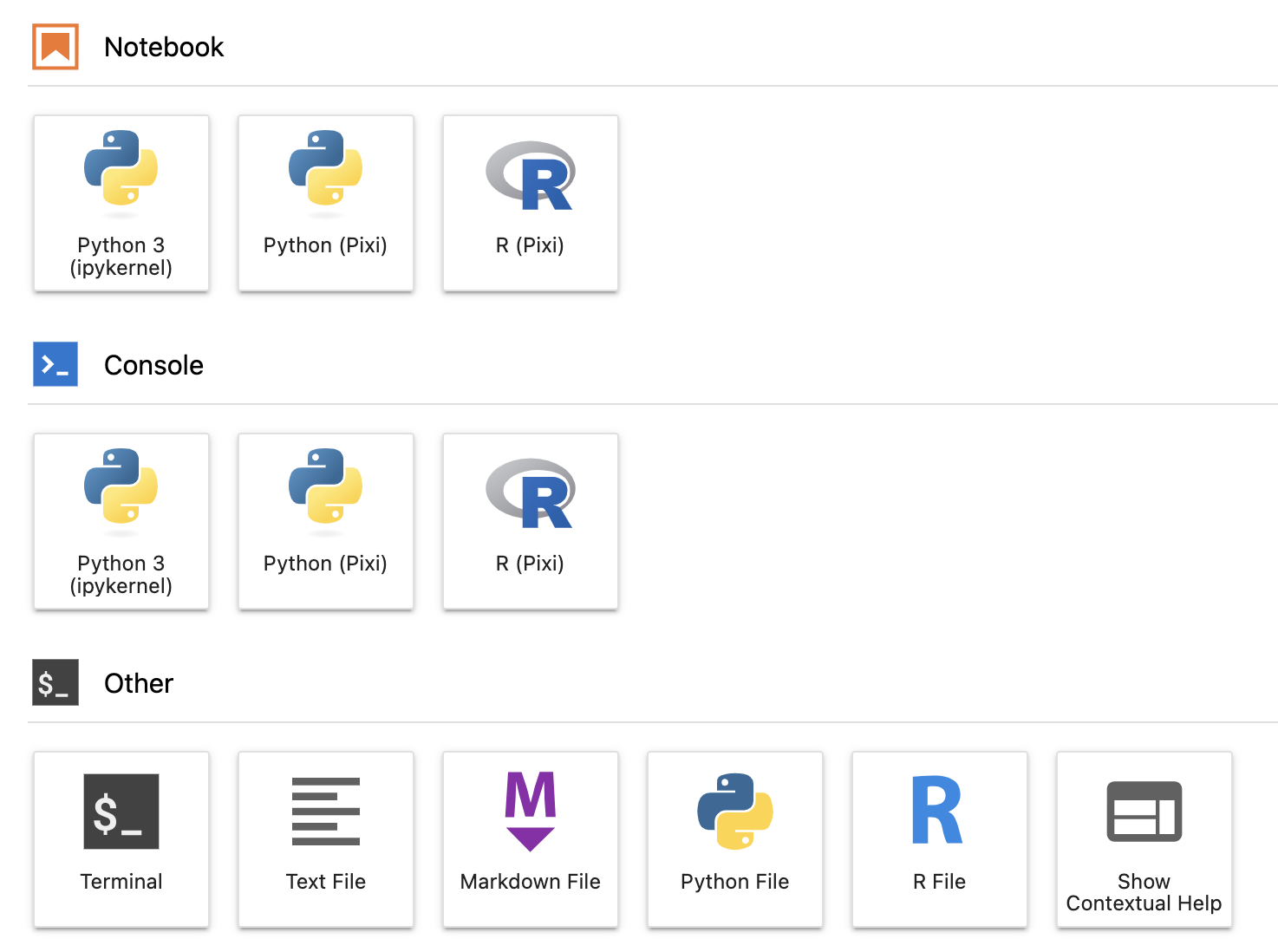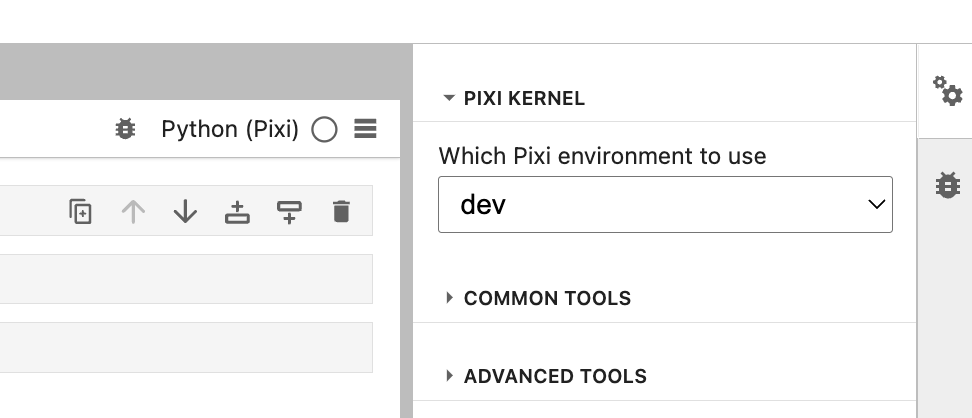Per-directory Pixi environments with multi-language Jupyter kernels.
Pixi kernel supports Jupyterlab 4, Python 3.9+ and Pixi 0.39.0+ using pyproject.toml and
pixi.toml configurations.
Disclaimer: This project is not affiliated with Pixi, and not an official Pixi plugin.
This assumes you want a Python kernel. For other languages, check the Kernel
support table and replace ipykernel with the desired kernel package.
- Install Pixi and
pixi-kernelalongside JupyterLab using your favorite package manager. - Restart JupyterLab.
- Create a new directory and initialize a Pixi project with
pixi initandpixi add ipykernel. - Select the Python Pixi kernel and you are good to go.
See the Pixi docs for more information on how to use Pixi.
By default, pixi-kernel will try to find the Pixi binary in this order:
- Use
shutil.which("pixi")to find Pixi in your PATH - Check for a configuration file stored at:
- Linux/macOS:
$HOME/.config/pixi-kernel/config.toml - Windows:
$Env:USERPROFILE\.config\pixi-kernel\config.toml
- Linux/macOS:
- Check the default Pixi installation location:
- Linux/macOS:
$HOME/.pixi/bin/pixi - Windows:
$Env:USERPROFILE\.pixi\bin\pixi.exe
- Linux/macOS:
If you have Pixi installed in a non-standard location, you can create a configuration file to specify its path:
pixi-path = "/path/to/your/pixi"Pixi kernel supports the following kernels:
| Language | Kernel | Package name |
|---|---|---|
| Python | IPython Kernel | ipykernel |
| R | IR Kernel | r-irkernel |
Support for other kernels and languages can be added by opening an issue or a pull request, see CONTRIBUTING.
Pixi kernel supports multiple Pixi environments in a single Pixi project. To select a specific environment, use JupyterLab property inspector, save your notebook and restart your kernel.
If an environment cannot be determined, Pixi kernel will fallback to the value in the
PIXI_KERNEL_DEFAULT_ENVIRONMENT environment variable, if specified. Otherwise, the default Pixi
environment will be used.
If you're using pixi-kernel on JupyterHub and cannot access the environment where JupyterLab is installed, you can use the following workaround:
- Install
pixi-kernellocally:pip install pixi-kernel --user - Install Pixi
- Restart your JupyterLab server
See #62 and #51 for more information.
Pixi kernel only works with the default environment in VSCode.






